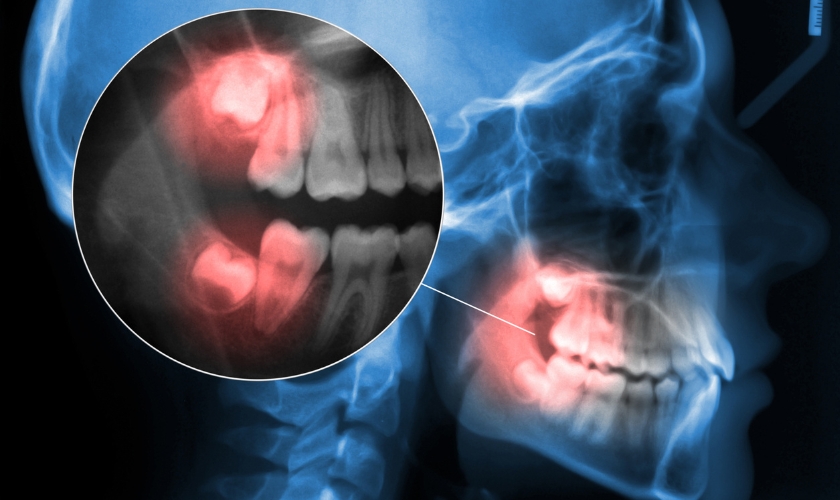704-844-2943
AVAILABLE FOR EMERGENCIESShould I Get All Four Wisdom Teeth Out at Once?

The decision to remove wisdom teeth, particularly whether to extract all four at once, is a common dental dilemma. While some individuals have no issues with their wisdom teeth, others may experience pain, infection, or crowding. Wisdom teeth removal is often recommended to prevent future oral health problems, but the question arises: should all four be removed simultaneously, or should extractions be staggered over multiple visits? This blog will explore the pros and cons of removing all four wisdom teeth at once to help you make an informed decision.
Understanding Wisdom Teeth
Wisdom teeth, or third molars, are the last set of teeth to emerge, usually between the ages of 17 and 25. Due to changes in human diets and jaw sizes over time, there often isn’t enough space for these teeth to grow properly. Most people have four wisdom teeth—two on the top and two on the bottom—but not everyone has adequate room in their mouth for these additional teeth, which can lead to issues like impaction, crowding, and infection.
Why Remove Wisdom Teeth?
Dentists often recommend wisdom teeth removal for several reasons:
- Impaction: When third molars don’t have enough room to emerge properly, they can become impacted, growing sideways or partially erupting. Impacted third molars can cause pain, swelling, and infection.
- Crowding: Wisdom teeth can push against other teeth, causing misalignment or crowding, which may require orthodontic treatment.
- Infection and Decay: Due to their location at the back of the mouth, third molars are harder to clean, making them more susceptible to cavities and gum infections.
Benefits of Removing All Four Wisdom Teeth at Once
While the decision ultimately lies with you and your dentist, there are several advantages to removing all four wisdom teeth in a single procedure:
- Efficiency: It saves time and reduces the number of appointments needed.
- Reduced risk of complications: Removing all four teeth at once can lower the chance of developing a dry socket or infection.
- Cost-effective: Typically, the overall cost of the procedure is lower when performed in a single session.
- Consistency in recovery: You’ll only have to go through one recovery period, as opposed to multiple.
Who Should Consider Removing All Four Wisdom Teeth at Once?
While removing all four wisdom teeth at once can be advantageous for many people, it’s not always the best option for everyone. Consider this approach if:
- You’re in Good Overall Health: Healthy individuals with no underlying medical conditions typically recover faster and more easily from oral surgery.
- All Four Teeth Are Problematic: If all four of your third molars are impacted or likely to cause issues, it’s often more practical to remove them all at once.
- You Want to Minimize Time Off: If you have a busy schedule and want to minimize the disruption to your daily life, one recovery period might be more convenient.
When Might Removing All Four Not Be Ideal?
While removing all four wisdom teeth at once is often recommended, there are specific circumstances where it might not be the best option:
- No symptoms: If none of your third molars are causing problems, your oral surgeon might recommend monitoring them and only removing those that become problematic.
- Severe impaction: In cases of severely impacted third molars, removing all four at once might increase the risk of complications.
- Medical conditions: Certain medical conditions might make undergoing a longer surgical procedure more risky.
The Decision-Making Process
The best way to determine the best course of action for your third molars is to consult with a dentist. They will examine your mouth, take X-rays, and discuss your options with you.
Consider the following factors when making your decision:
- Your overall oral health: Are there other dental issues that need to be addressed?
- The condition of your third molars: Are they impacted, causing pain, or contributing to other dental problems?
- Your age: Younger patients often heal faster, making it a good time to remove third molars.
- Your personal preferences and risk tolerance: Weigh the benefits and risks of both options.
Deciding whether to have all four wisdom teeth removed at once is a personal choice that depends on your specific circumstances and preferences. While there are clear benefits to tackling all four teeth in a single procedure, including a shorter overall recovery time and reduced costs, the decision should be made in consultation with your dentist. They can provide personalized advice based on the position of your teeth, your overall health, and your comfort level with the procedure.
If you’re facing the prospect of wisdom teeth removal, don’t hesitate to discuss all your options with your dental care provider to make the best choice for your oral health.

